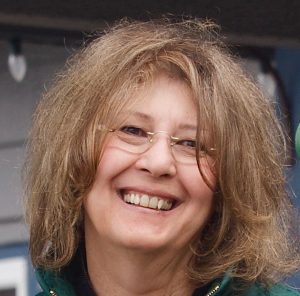Becoming A Published Author
Agony and Ecstasy of Writing a Book
By Evan and Lois Swensen
Chapter Twenty-Nine
As I Breathe, I Write
Marianne Schlegelmilch

I have long found it amusing when people ask me how long I have been writing. My standard tongue-in-cheek answer is this: As I breathe, I write.
I write often, I write prolifically, and I write even when a phone call would be faster. Just ask my publisher, who often comments on how many emails I send. I just love to write—but personal and selective writing, for I don’t do social media, and that’s another story.
Writing has always been easy for me. Perhaps it is because my mother was a newspaperwoman—working as a reporter at our hometown newspaper in her days before marrying my father, and later rising to the esteemed level of head obituary writer, a position that earned her the title, Obit Lucy. She always stressed grammar and spelling. Interesting that after such intense, personal training, I have trouble with both of those today.
In nursing school, I wrote humorous songs and ditties to help get me through the serious business of my studies. And later, as a practicing critical care nurse, I wrote poetry and essays to relieve the immense stress of dealing with life and death issues every day.
During my work as a nurse, I first became a published author and first met Evan Swensen of Publication Consultants. Someone had jokingly suggested a children’s book for a fundraiser at the Blood Bank of Alaska, where I worked. The subject had come up during one of those impromptu brainstorming sessions that workplaces in America are known for, and so, when the subject came up, I jumped on it, saying without hesitation, “I can do this!”
And I did do it, creating the fictional story of a small puppy found by race founder Joe Redington Sr., who learns all about the Iditarod and even more about life. A coworker did the wonderful and thoughtful illustrations and cover, and I had no trouble getting my story done once my life coach, mentor, and lifelong loving husband, Bill, told me I could do it, and even came up with more than a few great ideas.
What I wasn’t prepared for was editing. Another coworker edited my work. She had the credentials for sure, but I was fully convinced that she was homogenizing my work and removing all traces of “me” from my writing. I found it very difficult to absorb. And then there was the boss’s wife, who didn’t think the spelling of the title was tasteful. Well, I won that small battle when I pointed out that I had named the book after my dog, whose registered name was just as I spelled it on the title.
And, I have to admit that the editor did a fine job, now that I have reread the book some ten years later. In retrospect, I so appreciate the dedication of everyone involved in providing all their input to help create a successful project. They could have thrown me out there flailing, but they helped polish me and let me shine. Thus, my first book, Solo Flite, was published in 2002.
By all accounts, it was a success, even raising enough to donate a portion of the profits to Joe Redington’s widow, Vi, to help her dream of building a museum to the sport of mushing in which to house her late husband’s memories. Words cannot say how important it was to me to keep this small promise to her to thank her and Joe and their family for their support of my fledgling writing endeavor and my work in managing the first satellite center of the Blood Bank of Alaska—something they were instrumental in helping to promote.
After that experience, I figured I was done. I had a book out, and it had done well, but I was a nurse, and I had to work, so no more serious writing thoughts emerged. That is, until around 2006, when some serious life challenges prompted me to again want to diffuse my stress and try to move others to care.
This time I wrote for veterans—veterans with PTSD, one of whom I was married to. I wanted people to understand that these soldiers of war were good people whose lives would never be the same because of their service to our country. They had made the hidden sacrifice of self—serving honorably and with valor, and now left carrying a lifetime of pain.
Inspired by the ravens that frequent the Mat-Su Valley in the winter, I wrote Raven’s Light—the fictional tale of a raven named Zak, who faces his traumas and resolutions after witnessing masses of his friends die in Alaska’s biggest oil spill.
I was as surprised as anyone that the story came out in two voices and became an allegorical story of PTSD, written as a tale of nine months in an Alaska winter, and featuring characters who I named after veterans with PTSD that I knew.
Most people didn’t see the deeper story, seeing only a colorful local tale, but for those who did, it was powerful. I know this because they told me. The vets said I got it right, and other readers said it changed their lives. One woman vowed to carry it to the top of Mount McKinley during a future climb she was planning in memory of her son who was lost at war. Later, I would be devastated after what I thought was a successful book signing at an iconic bookstore in Anchorage led to one of their staff’s trashing my most personal and difficult-to-write book on a public website. To this day, I ask why?
My spirits were lifted, though, as I met more of those who said the book touched them as no other book had ever done. A few nationally prominent figures embraced it, telling me they wanted to share my book with others. I decided that the bookseller who chose to trash it just didn’t get it. Still, I never got over the insensitivity or the wondering why someone would go out of his way to hurt someone. Nurses, you see, have trouble with meanness.
I wrote another tale in two voices and dedicated it to a friend whose wife had died young. I started a third tale, but it is incomplete. Somewhere along the way, I observed that mysteries seemed to do well, so I wrote one, then two, and now three. Even within the storylines of my mysteries, people keep telling me I touch them. It is a great compliment—better than money.
I like to think I can write anything I want to. I believe that. Perhaps it is arrogance. I don’t consider it confidence, for I am fully convinced that I am unsuccessful. I do know that my writing touches people. Is that success? Maybe it is, and maybe it is just the feeding of my insatiable need to express myself.
I am working on my fourth mystery and a couple of other projects. I write a column for the Alaska Nurses Association called, Heart of the Alaska Nurse. Nurses tell me they love it—high-up nurses who never before knew my name. Who knew?
They, too, say my writing touches them. They call me a leader. There is a book in the works. I am donating my work to an already established fund to help nurses. Again I ask, “Who knew?” I have a coauthor. I hope to help her shine in her first book as well.
I suppose I will always write, just as I will always wonder if I am tying up unnecessary resources to have my books published. I dread book signings, yet I always seem to enjoy them once I’m there. People talk to me, I listen, and we share.
The difficult issues of money and sales distress me. I don’t like to deal with money issues. I never have. I try hard, though, in spite of it, and I try to help other authors succeed. For me, it’s not about the money, although I do love those royalty checks.
I love to brainstorm, too—to find creative ways to succeed. Perhaps I like to challenge myself to succeed. I think it keeps me on my toes, especially the rejections—the not wanting to carry my books, or the rare bad review. They make me mad and disappointed and hurt, but ultimately they make me try harder and appreciate the good things that come my way.
As has often been said, For every door that closes, a new one opens. I like to think that way, although waiting to find that right door is as maddening and demoralizing as I can imagine. Thus, to use another cliché, I keep on keeping on. I hope I always will. I am grateful to have a supportive husband and a publisher who tries to inspire. I am an author. Again I say, “Who knew?”


